MS Management Information Systems
In-Person
Master database management, leveraging large data sets, and the technical skills to design and secure information systems. Learn a solid technical information systems foundation and how to contribute to solving business problems.

Academic Overview

Students who have already completed or are in the process of completing a bachelor’s degree may apply for the master’s program in Management Information Systems (MS-MIS). Applications for the MS-MIS program are accepted for fall admission only.
Degree Details
Credit Hours: 36
Class Type: In-Person
Location: College Station
Designation: STEM
Admissions
Below is a list of application requirements and information for prerequisites for each applicant.
- Four year undergraduate degree
- BusinessCAS Application
- Application fee paid in BusinessCAS
- Essay responses
- Resume
- Three letters of recommendation
- Unofficial transcript(s)
- GRE or GMAT (unofficial)
- TOEFL or IELTS (unofficial; international applicants)
- WES course-by-course evaluation (for applicants with undergraduate degrees from non-U.S. institutions only)
- Prerequisites
Average Profile: GRE 317 | GMAT 670 | Undergraduate GPA 3.57 | Work Experience 26 months
(GRE, IELTS, TOEFL code – 6003 | GMAT code – 7B7-K9-16)
Admitted Students: Upon notification of selection for admission, a non-refundable deposit of $500 is required to hold a seat in the class. This deposit will be applied to the fall tuition/fee statements of students who matriculate into the program. Individuals who ultimately do not enroll in the program will forfeit the deposit.
The deposit deadline is April 15 @ 11:59 PM (CST).
Deposits should be made via credit card. Please use Flywire to submit your payment.

Apply To Mays
Fall Entry Only – Applications Are Open
Priority | Deadline: December 1
International Applicants | Deadline Extended to February 29
U.S. Applicants| Deadline: May 1
Tuition and Financial Aid

Earning an master’s degree is truly an investment in yourself and your career. Use our tuition calculator to estimate your cost or contact our program team. Financial aid can include federal, state, institutional, and private sources that assist eligible students in funding their education. We encourage you to review information available from the Texas A&M University Office of Financial Aid for additional information.
Learn More
Explore MS Management Information Systems
Leading the Nation in Program and Research
Excellence
U.S. Master’s in Information Systems Management
Eduniversal
overall best Supply Chain program in the US
Gartner Research
publishing in top Supply Chain journals (JOM MSOM, POM)
UT-Dallas Research Rankings
undergraduate Supply Chain program
U.S. News & World Report
Department
The Department of Information and Operations Management
The Department of Information and Operations Management oversees Mays Business School’s Management Information Systems (MISY) and Supply Chain Management (SCMT) programs. Our mission is to advance the field of information sciences through quality education, active partnerships, and research initiatives. Our department ranks among the top in the world in terms of research productivity, impact, and visibility.

MS Management Information Systems
Hear from Girija Laxmi Iyer ’23 as she explains how her MS-MIS degree is equipping her to become a highly impactful woman leader in the STEM industry.






